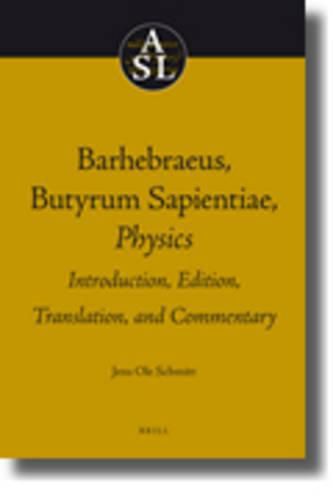Readings Newsletter
Become a Readings Member to make your shopping experience even easier.
Sign in or sign up for free!
You’re not far away from qualifying for FREE standard shipping within Australia
You’ve qualified for FREE standard shipping within Australia
The cart is loading…






This volume offers the first critical edition and English translation of the Book of Physics of Barhebraeus’ (d. 1286) magnum opus, Butyrum Sapientiae. Barhebraeus’ text is not simply a Syriac translation of Aristotle or Avicenna; it offers some unexpected and un-Aristotelian views on time, motion, and inclination, thus adding various personal twists and turns to the work. For his Book of Physics Barhebraeus drew mainly on Arabic texts by Fakhr al-Din al-Razi, among them the as yet unedited al-Mulakhkhas. There are also some remarkable similarities with the late Neo-Platonic philosopher Damascius (6th ct.), especially in Barhebraeus’ treatment of time and motion, and also with Lucretius. Thus, the present volume argues, the Book of Physics was based on a variety of sources, which were re-arranged in a unique and very personal manner by Barhebraeus.
$9.00 standard shipping within Australia
FREE standard shipping within Australia for orders over $100.00
Express & International shipping calculated at checkout
This volume offers the first critical edition and English translation of the Book of Physics of Barhebraeus’ (d. 1286) magnum opus, Butyrum Sapientiae. Barhebraeus’ text is not simply a Syriac translation of Aristotle or Avicenna; it offers some unexpected and un-Aristotelian views on time, motion, and inclination, thus adding various personal twists and turns to the work. For his Book of Physics Barhebraeus drew mainly on Arabic texts by Fakhr al-Din al-Razi, among them the as yet unedited al-Mulakhkhas. There are also some remarkable similarities with the late Neo-Platonic philosopher Damascius (6th ct.), especially in Barhebraeus’ treatment of time and motion, and also with Lucretius. Thus, the present volume argues, the Book of Physics was based on a variety of sources, which were re-arranged in a unique and very personal manner by Barhebraeus.